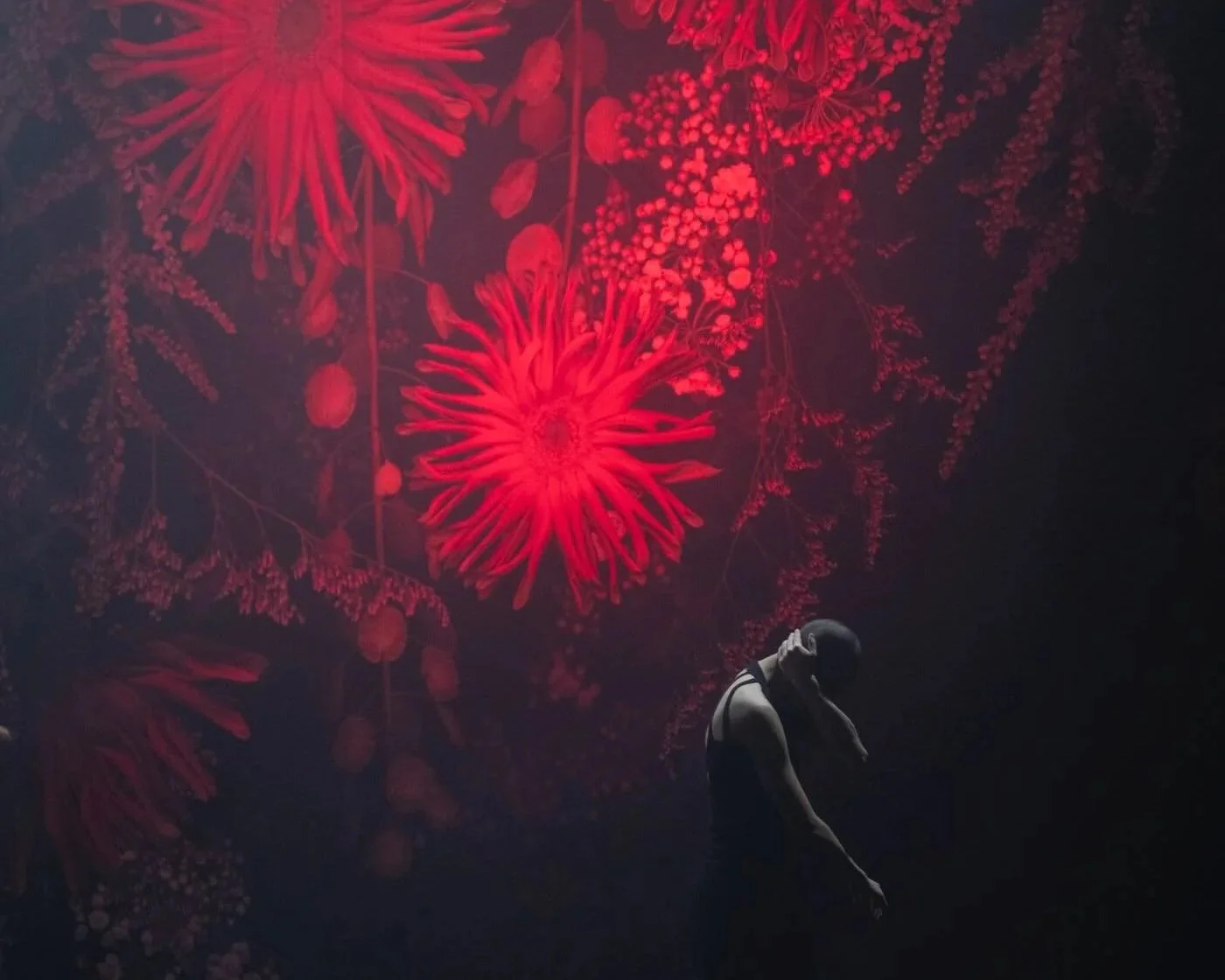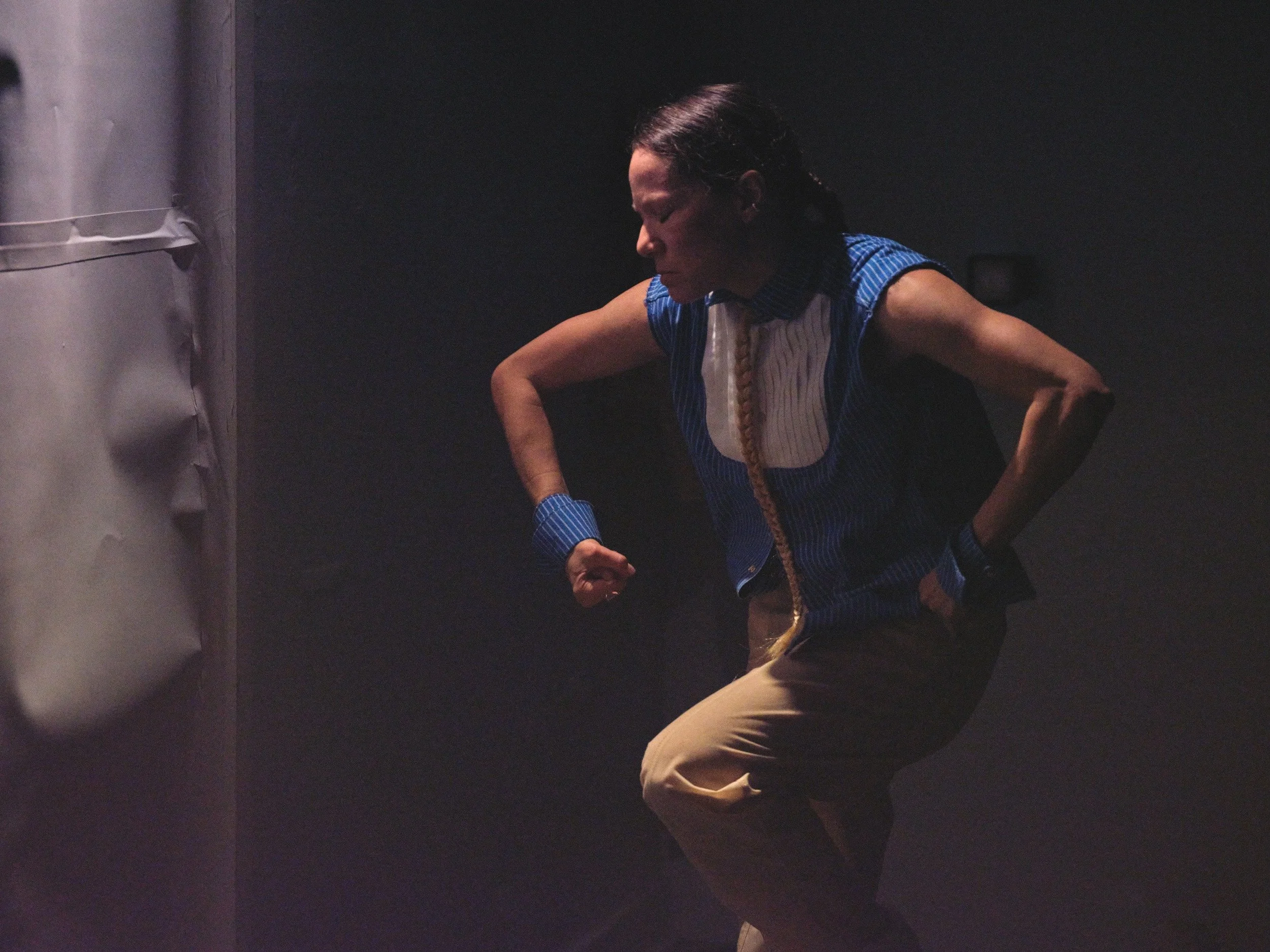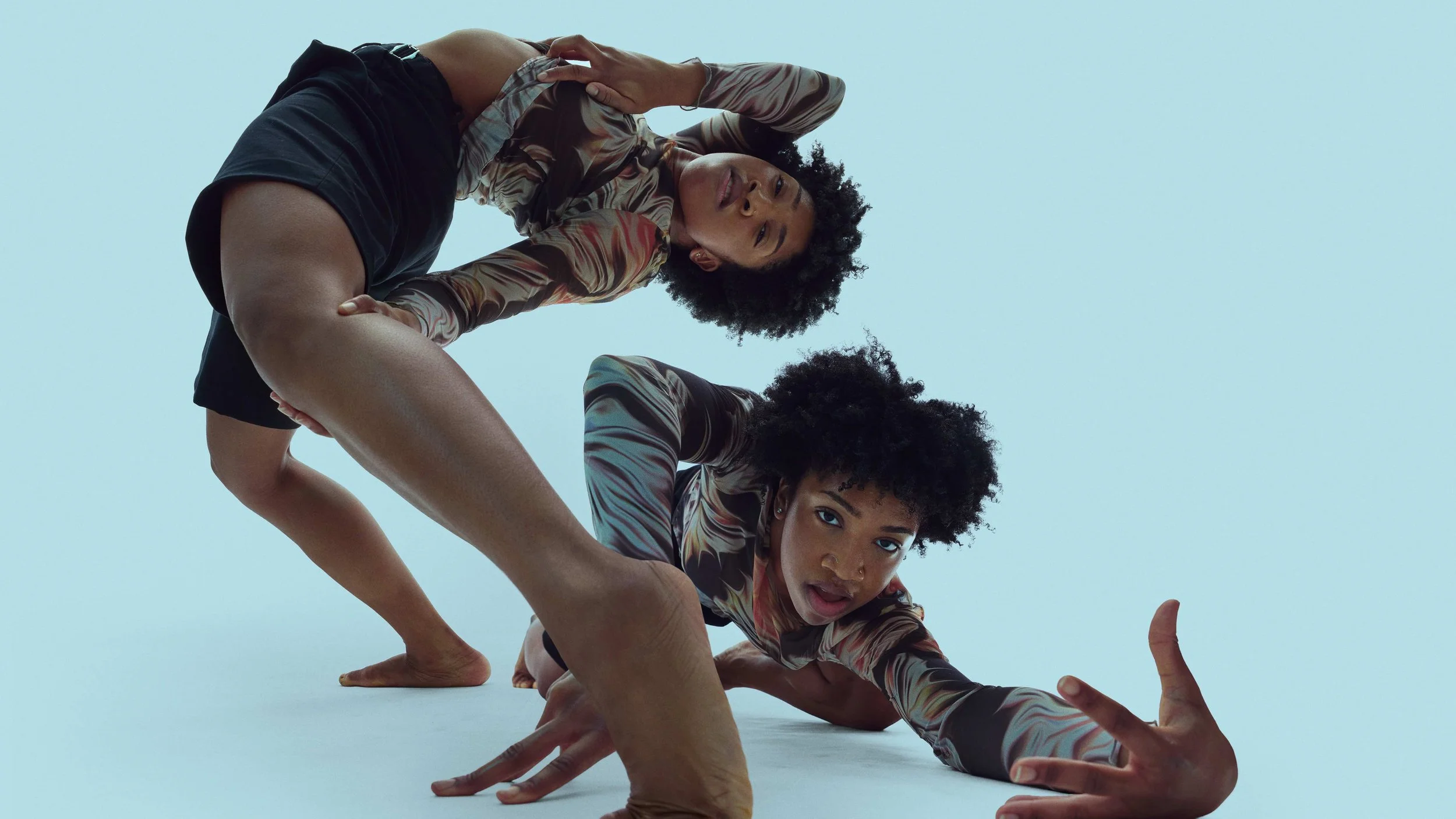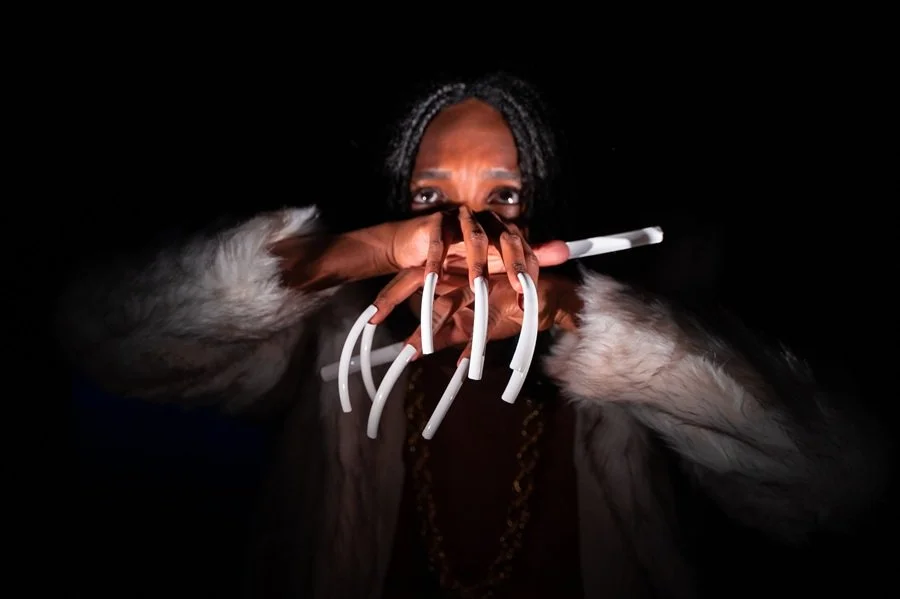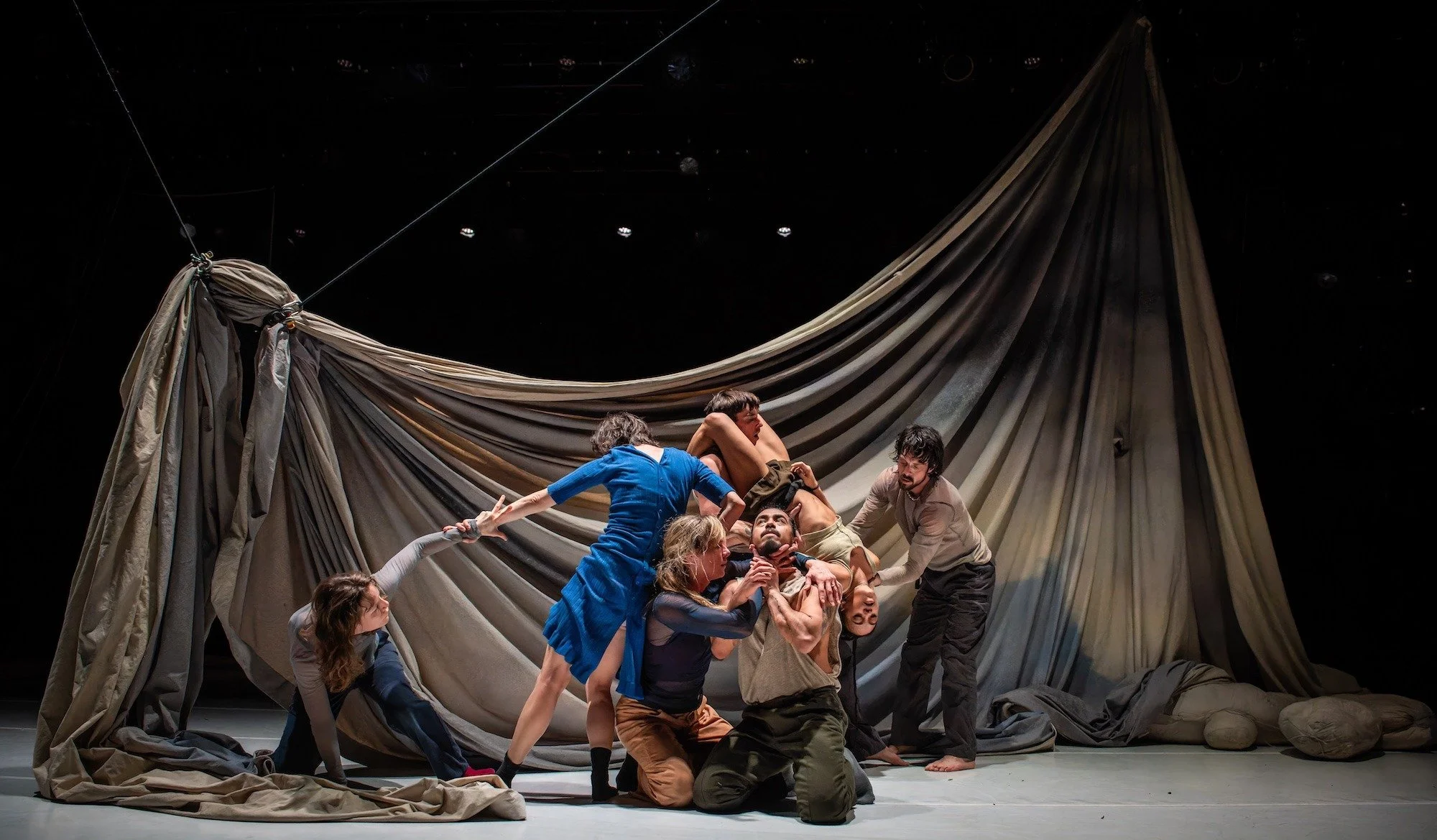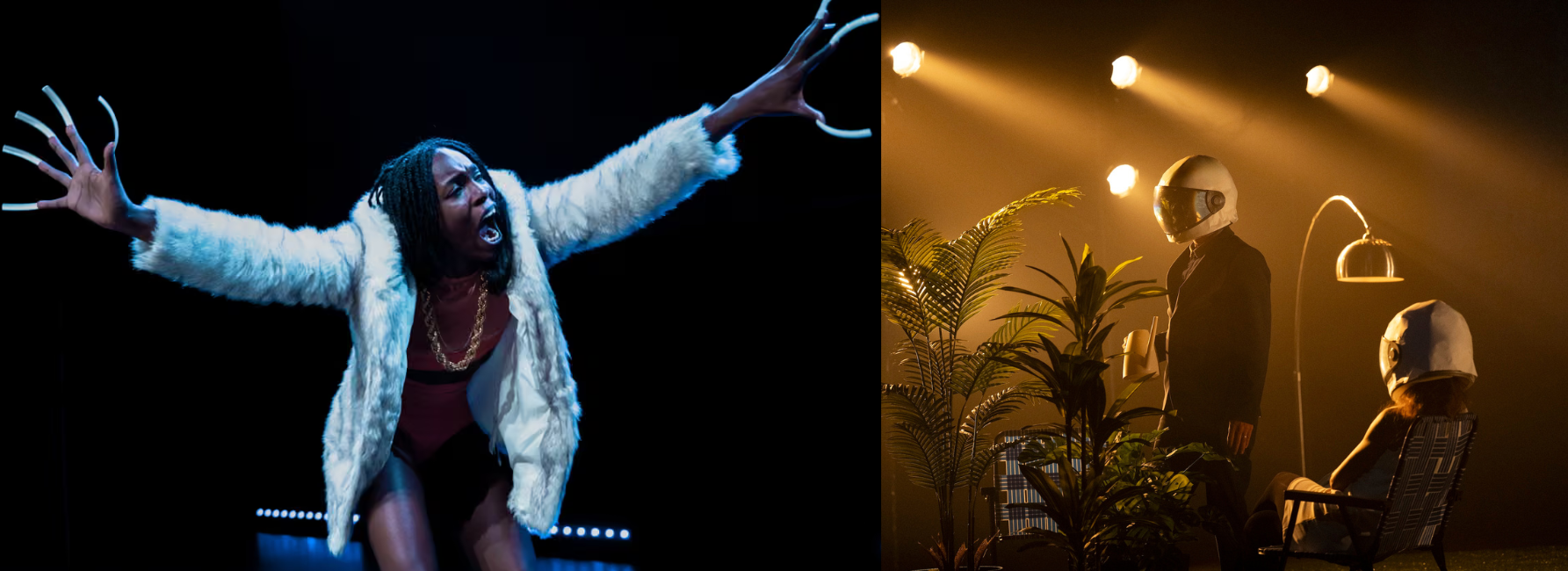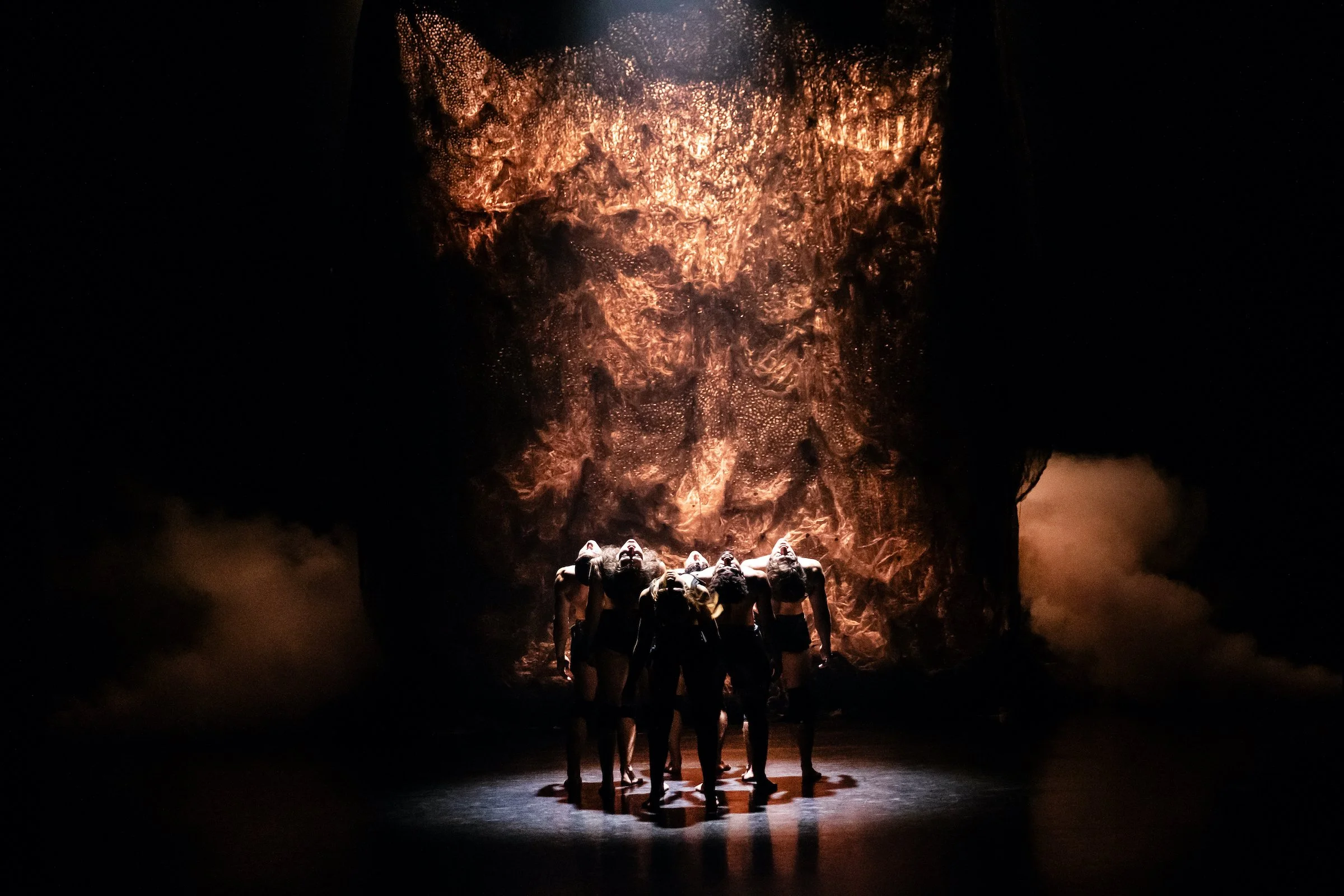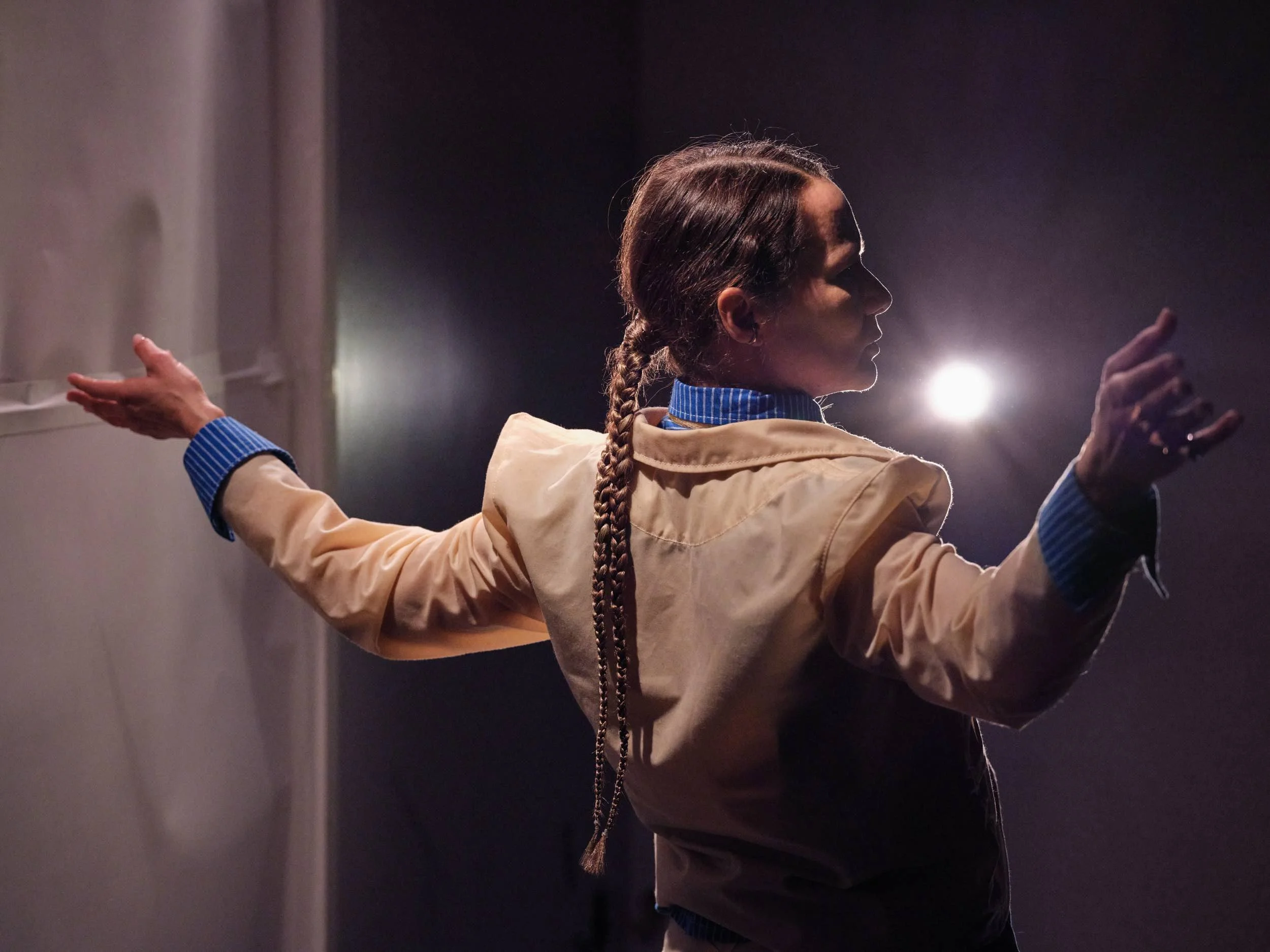Tara Cheyenne Friedenberg opens up about body image in Body Parts
The dance-theatre artist uses her characteristic warped humour to move through pain
Tara Cheyenne Friedenberg’s Body Parts is the digital solo version of the Body Project. Photo by David Cooper
Progress Lab 1422 presents Body Parts by Tara Cheyenne Performance on May 15 at 7:30 pm and May 16 at 2 pm online for free.
THE WAY MULTIDISCIPLINARY artist Tara Cheyenne Friedenberg puts it, she presents as thin. However, even after decades on local and national stages, body image is something the esteemed Vancouver performer grapples with. It’s a phenomenon that’s rampant among women in general and those in the dance world in particular—and it’s the focus of her new solo, Body Parts, which has its world premiere via Progress Lab 1422 Presents digital series.
In an interview with Stir, Friedenberg explains that the idea sprang forth from work going back a few years, when she was in the studio with other dancers and the topic of how they felt about their bodies popped up every now and then. It was a something that most people in the room had dealt with and yet there seemed to be a reluctance to take a deep dive into the subject out in the open.
That just made the founder of Tara Cheyenne Performance want to hear more. She set out to interview and hold group discussions with as many women, female-identifying, and non-binary individuals from the dance and theatre communities throughout B.C. as she could about how they truly felt in their own skin.
“There’s all the negative talk out in the world and in social media—all the problematic signalling we’re getting—but we’re not outwardly talking about it,” Friedenberg says. “I do love to talk to people often about things that are a bit taboo, like death and religion, and I wanted to talk to other folks about body image and how we’re navigating that first as dancers—because that is really loaded and there are so many big issues there—and then just more generally. It’s something I’ve struggled with in my career.
“There is so much shame around how we feel about our bodies,” she adds. “I was a ballet dancer when I was very young, and it kind of gets normalized in that world. Then after I had my child… there was this pressure to get back into shape. There’s that old gem: ‘get your body back.’ I collected so many stories, and I feel like the subject matter is very, very important. It’s personal, it’s political, it’s micro, it’s macro, and the more we talk about we’re experiencing, the more we find the intersections between all of our stories, and there’s permission to feel what we’re feeling.”
Friedenberg, who trained at the Royal Winnipeg Ballet in her youth and who went on to study theatre at the University of Calgary and dance at SFU, initially envisioned an ensemble piece, with The Body Project to have premiered last fall. With COVID-19 quashing those plans, the work morphed into a digital solo. To create Body Parts, Friedenberg kept her original crew onboard, working with eight outside eyes for the piece that’s described as part-stand-up, part Greek tragedy, part performance art, and part contemporary dance—in other words, characteristically Friedenberg. Whether she’s bringing a metal-obsessed social reject to life (bANGER) or probing spirituality (Porno Death Cult), Friedenberg is known as much for her wickedly warped sense of humour as she is her intense theatricality. One of her colleagues aptly described her style as “stand-up comedy meets dance”.
“Humour is a really important part of moving through pain,” Friedenberg says. “A dear friend, theatre artist JD Derbyshire, has said ‘pain plus time equals comedy’: for me, that is 100-percent true. Getting through the pandemic and body image and dysmorphia struggles: finding the ludicrousness in it and the comedy in it takes the power out of the ideas and out of the cultural pressure of not being good enough.”
Coping as a performer in the era of COVID-19 is a sub-theme of the work, with Friedenberg aiming to break the fourth wall virtually. She directed Body Parts with Josh Martin, Kate Franklin, and David Cooper (who’s also the director of photography). Joining those three artists as outside eyes were Justine A. Chambers, Kate Franklin, Jamie Robinson, Zahra Shahab, Caroline Liffman, and Lisa Gelley. Although Friedenberg is the only performer we see, she’s keen to credit her collaborators (which include Mily Mumford, Cande Andrade, Wendy D, and Alen Dominguez. Marc Stewart contributed original music and sound editing, while James Proudfoot created the lighting design with Taylor Janzen.) “When we’re trying to make art in isolation, the more we can connect in any way—even if rehearsals on zoom are weird and hard—it’s an antidote to that alone feeling,” she says.
Each screening of Body Parts will be followed by a moderated discussion about body image. (Progress Lab 1422 and TCP note that the show contains mature content and explores eating disorders, pointing to Kelty Eating Disorders as a resource for anyone needing help.)
As for where Friedenberg is at when it comes to how she’s feeling about her body these days, she’s working on it. She says she’s trying to get to a place where she no longer has diet apps on her phone. A few years ago, there was popular push for women to stand in front of the mirror and say “I’m gorgeous,”. Sure, it’s better approach than so much negative self-talk, but that wasn’t working for her, either. “In a way I feel that’s also kind of damaging,” Friedenberg says. “What if we say things like, “I have an appetite today and that’s a good sign!’ or ‘I can enjoy a cup of coffee and hug my child.
“My goal is neutrality,” she says. “Instead of wanting to be this way or that way, what if we just appreciated our bodies? Our bodies are always changing.”
More information is at Tara Cheyenne Performance.




